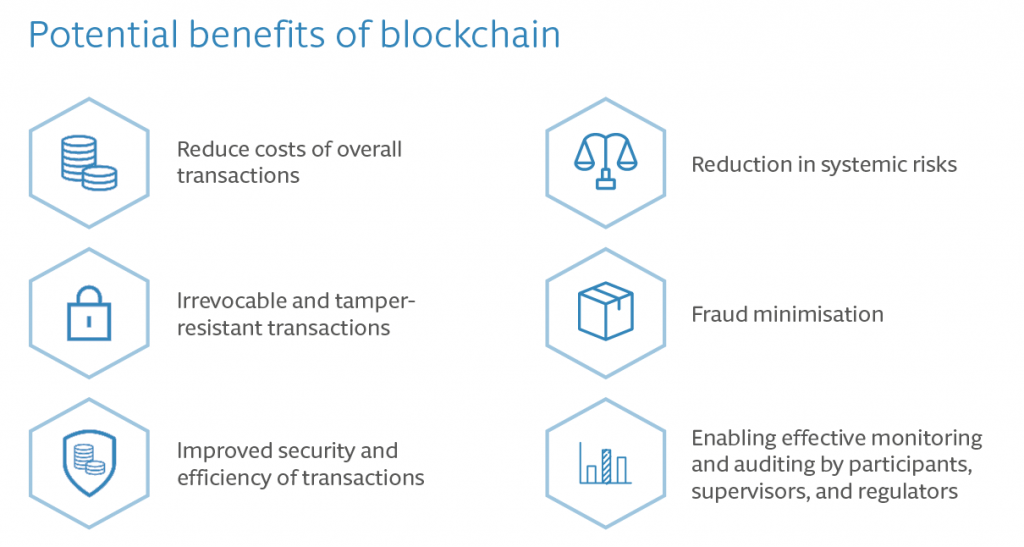
Have you heard about blockchain technology? It’s been hailed as the next big thing in the tech industry, with the potential to revolutionize how we do business online. But what exactly is blockchain, and how does it work? In this article, we’ll explore the ins and outs of blockchain technology, from its origins to its current uses and potential future applications.
What is Blockchain?
At its core, blockchain is a type of database that stores information in a decentralized, secure, and transparent manner. This means that instead of relying on a central authority to verify and store data, blockchain uses a network of computers (called nodes) to validate transactions and keep a record of them.
One of the key features of blockchain is that once a transaction is recorded, it cannot be altered or deleted. This is because each block in the chain contains a unique digital signature (called a hash) that links it to the previous block in the chain. This creates a permanent and tamper-proof record of every transaction that has ever occurred on the blockchain.
How Does Blockchain Work?
The process of adding a new transaction to the blockchain is called mining. Miners use powerful computers to solve complex mathematical equations, which verifies the transaction and adds it to a new block on the chain. Once the block is added, it is broadcast to all other nodes on the network, which then validate and add the block to their own copies of the chain.
To incentivize miners to participate in the network, they are rewarded with cryptocurrency (such as Bitcoin) for each block they add to the chain. This creates a self-sustaining ecosystem in which miners are incentivized to keep the network secure and running smoothly.
Benefits of Blockchain

One of the biggest benefits of blockchain technology is its transparency. Because every transaction is recorded on the blockchain, it is easy to trace the path of money or goods through the network. This makes it an ideal solution for industries such as finance, supply chain management, and healthcare, where transparency and accountability are crucial.
Another benefit of blockchain is its security. Because the network is decentralized and each block is linked to the previous one, it is virtually impossible for anyone to tamper with the data on the blockchain. This makes it an ideal solution for industries such as banking and finance, where security is of the utmost importance.
Future Applications of Blockchain
While blockchain technology is still in its early stages, there are already a number of exciting applications being developed. One area where blockchain is seeing a lot of interest is in the field of digital identity. By creating a decentralized, secure, and transparent system for managing identity, blockchain could eliminate many of the problems associated with traditional identity systems, such as fraud and identity theft.
Another area where blockchain is being explored is in the field of voting. By creating a secure and transparent system for recording votes, blockchain could help to eliminate many of the problems associated with traditional voting systems, such as voter fraud and ballot tampering.
Conclusion
Blockchain technology is still in its early stages, but it has the potential to revolutionize how we do business online. By creating a decentralized, secure, and transparent system for recording transactions, blockchain could eliminate many of the problems associated with traditional systems. As the technology continues to develop, we can expect to see even more exciting applications emerge in the years to come.

👤 About the Author
Ashwani is passionate about DevOps, DevSecOps, SRE, MLOps, and AiOps, with a strong drive to simplify and scale modern IT operations. Through continuous learning and sharing, Ashwani helps organizations and engineers adopt best practices for automation, security, reliability, and AI-driven operations.
🌐 Connect & Follow:
- Website: WizBrand.com
- Facebook: facebook.com/DevOpsSchool
- X (Twitter): x.com/DevOpsSchools
- LinkedIn: linkedin.com/company/devopsschool
- YouTube: youtube.com/@TheDevOpsSchool
- Instagram: instagram.com/devopsschool
- Quora: devopsschool.quora.com
- Email– contact@devopsschool.com

